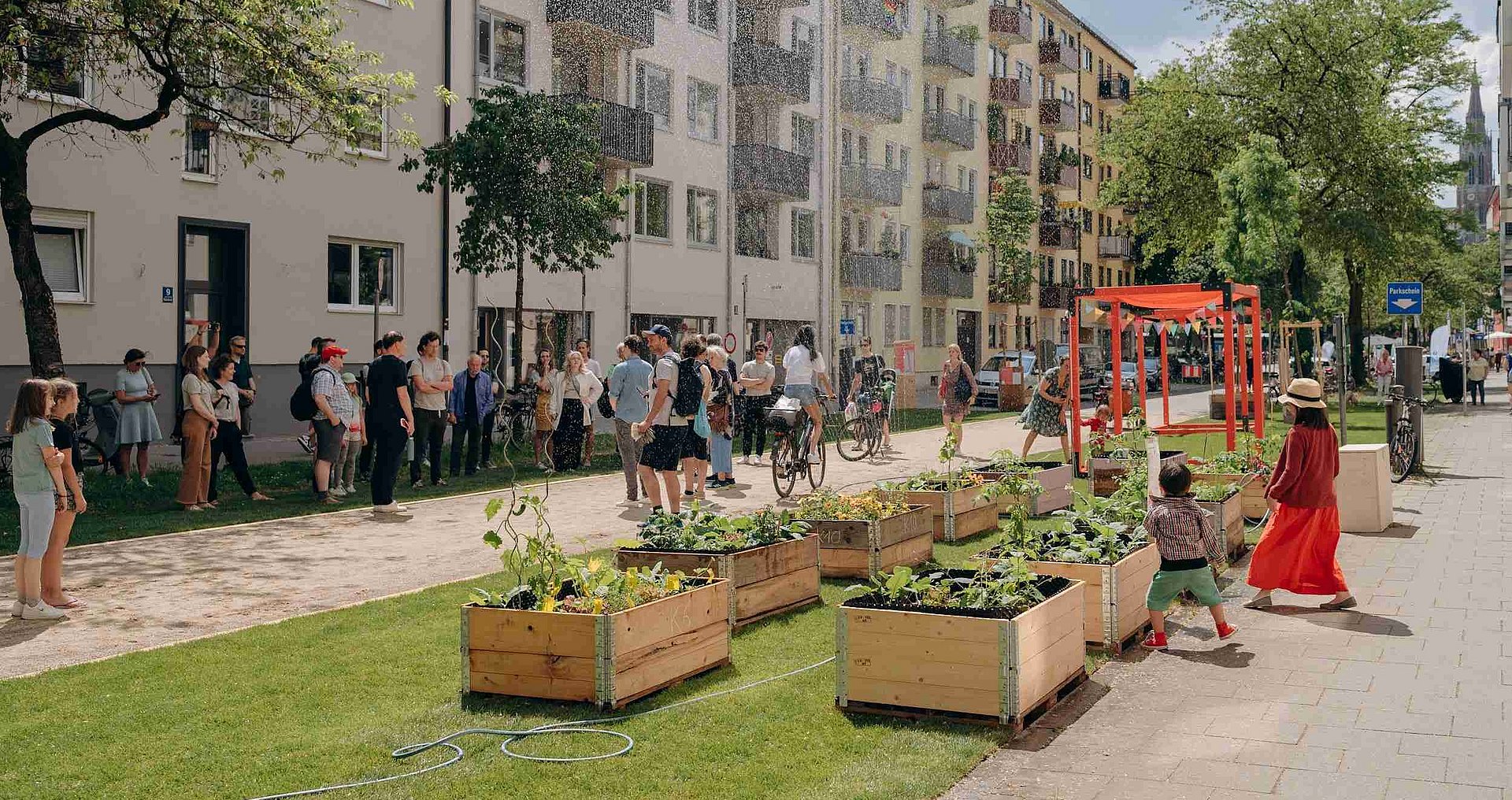Mobility
Our intelligent traffic planning and transportation concepts make urban and rural areas more liveable and attractive. Together with partners from the Munich metropolitan region or in global cooperations, we are working on sustainable mobility.

Getting people and goods to their destinations, extending their own radius and providing safe transportation systems are just some of the aspects that affect mobility. Our university was an early adopter of sustainable concepts and has played a pioneering role in the field of electromobility research in recent years. Researchers and students are working across disciplines to develop new models for digitally networked, sustainable mobility. We also cooperate with well-known industrial partners in the mobility sector and support founders in turning their ideas into successful start-ups.
TUM.Mobility
Sustainable mobility and intelligent traffic and transportation systems are an important part of our future concept TUM Agenda 2030. The Munich metropolitan region offers good conditions for a regionally anchored research and development network. We are therefore pooling our expertise in the "TUM.Mobility" research platform, in which numerous professorships are working on the mobility of the future across disciplines.
Focus areas
Mobility behavior and system analysis: Combining individual needs with publicly supported urban and transport systems is central to sustainable urban mobility. In the EIT Urban Mobility innovation program, we create liveable urban spaces and form the basis for education, research and entrepreneurial implementation with over 50 European partners.
The fields of research include innovative mobility services such as scooter sharing as a supplement to public transport, the development of mobility hubs, dynamic mobility pricing for all forms of mobility and the redesign of street spaces for walking and cycling.
Electromobility and alternative fuels: Climate change, increasing air pollution and rising noise emissions - the mobility of the future will be based on alternative fuels and electromobility. To achieve this goal, our research focuses on the question of how alternative energy sources and forms of propulsion can be optimized so that they completely replace fossil fuels and can be integrated into society in the best possible way.
This requires the cooperation of all specialist areas, starting with the optimization of battery cells, fuel cells and biological or synthetic fuels through to the intelligent integration of alternative energy sources such as hydrogen across all forms of mobility.
Artificial intelligence and human-machine interaction: AI can enable the operation of autonomous mobility systems in the future. We take a holistic approach to this transformation and consider systemic, operational and vehicle technology perspectives as well as the effects on user acceptance.
We are also working on the development, modeling, simulation and analysis of autonomous fleets, particularly in the context of the Mobility-as-a-service approach, in which various mobility services such as local public transport, car sharing and cab services are linked together. The new distribution of roles between humans and vehicles also plays a central role, on the basis of which we design innovative human-machine interfaces.
Infrastructure and operation: An integrated mobility system uses existing infrastructure and further develops existing systems, such as rail transport. This gives rise to new mobility services such as car sharing, e-scooters or, in future, autonomous flight systems. Our research focuses on mobility needs and the structural integration of new approaches, as well as cross-linking with existing infrastructure.
In addition to the optimization of existing transport systems, completely new technical possibilities are emerging, such as automated drones for passenger transport and logistics or new transport systems such as the Hyperloop - a high-speed train that travels through a tube at almost the speed of sound. We are also strategically planning and developing these new systems.
Location development - networking and shaping mobility spaces: Location development deals with the shaping, development and transformation of urban spaces. Studies in this area deliberately combine different structural elements: built and undeveloped space, different scales, administrative territories and competencies, urban polycentric urban spaces and rural cultural landscapes.
The interaction of these levels is examined in a delimited spatial section. The conclusions drawn from this play a central role in the development of transportation systems.
Traffic modeling and simulation: Traffic models are used to depict the behavior of road users. In particular, these models are used to estimate the effects of measures before they are implemented in reality. For example, infrastructure investments or operational optimizations, trends in mobility behavior, changes in energy costs or the outbreak of an infectious disease are tested.
A wide range of models are developed and applied at TUM. The scale of the models developed ranges from small-scale foot traffic simulations to simulations of the urban transport system and international models that depict traffic flows between regions.
Governance and participation: Mobility innovations are equally relevant for politics and society - because they determine where we live and work, how we live together and who in society can participate in what. With our unique focus on technology-oriented social sciences, we are able to systematically research and shape mobility as a socio-technical phenomenon.
Our schools have various methodological competencies in inter- and transdisciplinary research and broad expertise on a wide range of topics: participatory and co-creative innovation processes, social transformation processes, comparative studies on mobility systems and many more.
Business models and entrepreneurship: Technology companies and start-ups offer mobility as a service, and the stock market value of innovative electric vehicle manufacturers is sometimes higher than that of established car manufacturers. At the same time, digitalization and greater sustainability awareness are influencing people's consumer behaviour. Our interdisciplinary research and entrepreneurial activities at UnternehmerTUM are responding to this profound economic upheaval.
We address questions of market and platform design, the economic, ecological and social evaluation of mobility options, financing, the planning and control of mobility networks using AI as well as user behavior and offer entrepreneurship training for young founders.